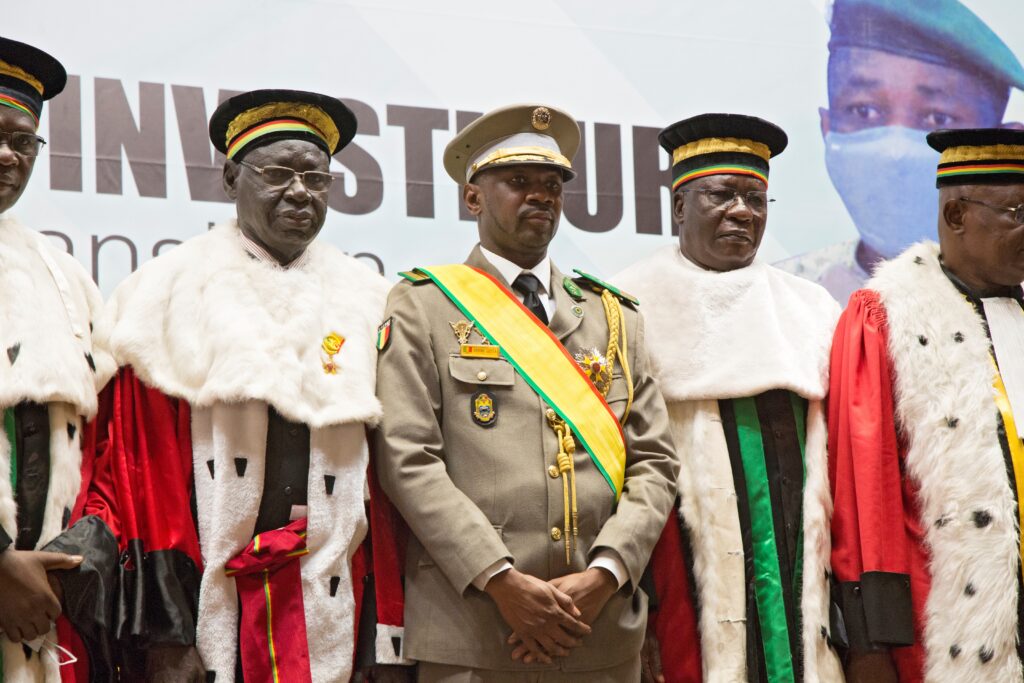Faced with the loudest calls yet for a return to civilian rule since the army took power in a coup, Mali’s junta has tightened its clampdown on criticism by dissolving political parties.After years of repression under the junta, the move has prompted fears that the unrest-plagued west African country’s military rulers wish to hold on to power for the long term, according to experts interviewed by AFP. The dissolution took place on Tuesday, after political parties held a rally on May 3 in the capital Bamako to protest and demand the army hands back power to civilians.The demonstration involving hundreds of people was “unprecedented” in the time since the military took power in back-to-back coups in 2020 and 2021, one analyst told AFP.”It was the first of its kind since the beginning of the five years of military-led rule,” said Fahiraman Rodrigue Kone, Sahel project leader for the Institute for Security Studies (ISS). “There has never been such obvious defiance from the political parties towards the military regime.”Several opposition leaders have either been abducted from the capital by hooded men, assaulted or forced to flee the country. “This decision (to dissolve the parties) is anti-constitutional! We will not accept… any threat to target my physical or moral integrity will not change a thing,” Moutanga Tall, a former junta supporter turned opposition figure, told AFP. Besides the freedoms of speech and association, multi-party politics has been enshrined in Mali’s constitution since 1992, when the Sahel nation became a democracy.”The day will certainly come when the leader’s palace, even if built up into a bunker, will no longer be high enough or fortified enough to contain the popular ire born of contempt for the people and disrespect for the law,” Yaya Sangare, former communication minister and Secretary General of the Alliance for Democracy, told AFP.- No-vote president -The liquidation of the country’s political parties was recommended by a national assembly organised by the junta in late April, which was largely boycotted by the opposition.That “national concertation” likewise proposed proclaiming junta chief General Assimi Goita president without a vote for a five-year renewable term, which would keep him in power until at least 2030. The army had originally committed to give power back to elected civilians in March 2024 but failed to make good on that promise.”The dissolution of political parties and other measures of civic restriction show the desire to create a pacified political space for the five years of governance planned for General Assimi Goita,” the ISS’s Kone said.What happened in Mali mirrors events in neighbouring Niger and Burkina Faso, both run by juntas who have already dissolved their country’s political parties. All three countries, ruled by officers who took power in coups between 2020 and 2023, have banded together to form the Alliance of Sahel States defence pact. – Internal junta ‘tensions’ -In recent weeks the junta has encouraged rallies across Mali calling for the extension of military rule, with General Goita at its head. On the part of the five-member junta, “there’s some hesitation about what to do next”, Giles Yabi, founder of the west African Wathi think tank told AFP.”The first option is to go to the polls, despite everything, and change uniforms to keep themselves in power. That would assume that all the soldiers who are sharing power between them agree on this,” Yabi said.”The second, is to simply remain in power with the status quo, but while toughening up political conditions to kill all opposition,” he added.Prolonging the period of military rule without elections “helps to create balance, as there are tensions at the heart of the junta between the five generals who carried out the coup d’etat together”, a west African political analyst told AFP on condition of anonymity.”If General Goita were to stand for president, he would have to quit the army four months before. In that case, General Malick Diaw, who is president of the transitional legislative body, will act as interim president, the analyst added. “But we know at that the beginning of the coup he was in a great position to lead the junta himself.”What assurances does General Goita have that General Diaw will indeed let him stand as a candidate as agreed, and what will become of the others if General Goita does win the election in the end? There are all these issues at stake.” Other experts however cautioned that these suspected tensions between the junta’s generals needed to be put into perspective.
